BEST 5 Immunity-Boosting Nutrie
. Vitamin D
3. Probiotics
Hello. I'm a pharmacist Jinny.
Since the pandemic began, one of the things that has changed in my daily life is that many people have asked me how to boost my immunity. I think that more people than ever before consider "immunity" to be an urgent and important health issue.
As many of you know, immunity is a very important function of the human body to identify and eliminate invaders from within the body, as the body's health maintenance system. From an immunological point of view, all diseases are the result of an imbalance in the immune system. The immune system also plays a role in keeping the body's cells healthy, preventing tissue aging and maintaining the body's functions.
Furthermore, the immune system plays a big role in maintaining a healthy overall quality of life by increasing resistance to many inflammatory, allergic, and viral diseases that can be considered serious but can be called a serious disease.
But did you know that our immune system is under constant threat in our daily lives? In addition to viruses, everyday factors such as aging, stress, insufficient sleep, alcohol consumption and smoking can also constantly lower the immune system, so today we would like to introduce you to the top 5 nutrients that can help your immune system.
1. Zinc
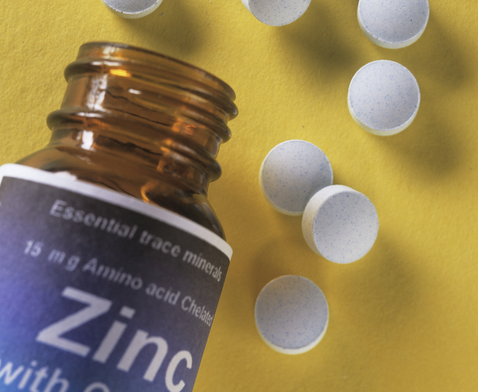
When it comes to nutrients that are good for immunity, many people probably think of zinc first. Zinc is a structural component of more than 200 bioenzymes and is present in every cell. It is essential for regulating major metabolic processes and reactions in the body, including DNA synthesis, and is indispensable for tissues that undergo rapid cell turnover, especially in the immune system [1].
Because of this, a lack of zinc reduces the entire process of complex immune processes, from the initial response to infection. In particular, cell division and proliferation are inhibited, so wounds do not heal well and the skin becomes rough. Severe zinc deficiency can lead to gastrointestinal disorders such as dermatitis, alopecia, and diarrhea with blisters or pustules, as well as repeated infections due to decreased cell-mediated immunity [2].
The skin, in particular, is the third most zinc-rich tissue in the body, and zinc deficiency has been linked to a variety of skin conditions [3]. In addition, the results of assessing the effects of zinc intake in acne patients were combined and zinc supplementation was found to reduce the incidence of inflammatory acne [4].
As such, zinc is an essential nutrient for the smooth functioning of the immune system, and it is also a nutrient that should be noted if you suffer from chronic skin problems for no apparent reason. You need to be especially careful about the deficiency, so we recommend that you continue to consume the recommended amount.
2. Vitamin D
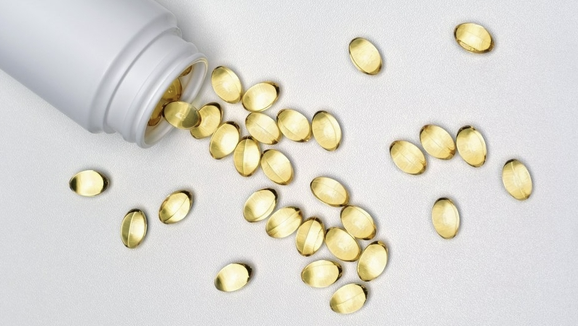
The second nutrient for immunity is vitamin D. Dr. Esther Yeo has emphasized the importance of vitamin D so many times that I think many of you reading this are already familiar with its importance to the immune system. Still, it is a very important nutrient for immunity, so I would like to introduce it even in a short amount.
Of course, vitamin D is a nutrient that helps maintain the balance of calcium and phosphorus in the blood, which facilitates bone formation. However, in recent decades, scientific research on vitamin D has been limited to the importance of congenital · It has been centered around the association of vitamin D with the adaptive immune system, leading to the conclusion that vitamin D is essential for normal immune function [5].
Vitamin D supplementation in 140 immunodeficient patients showed a significant reduction in the number of infections and pathogens [6], and a significant improvement in the rate of reduction of inflammatory responses in 95 tuberculosis patients evaluated the effects of vitamin D supplementation [7]. Vitamin D supplementation in healthy individuals has also been shown to significantly reduce inflammatory factors produced by peripheral mononuclear cells [8].
In addition to the health of the skeletal system, vitamin D is an important stimulator of the immune system and is essential for a normal immune response. In particular, it is a nutrient that Koreans lack, so it is better to pay attention to it constantly for immunity.
3. Probiotics
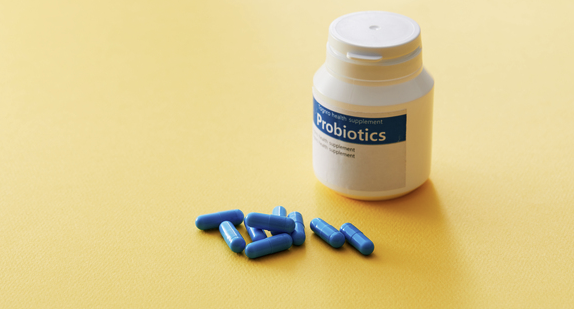
The Ministry of Food and Drug Safety has recognized the functionality of probiotics as "beneficial for intestinal health," but many people actually take them for immunity. It can be said that it is quite the correct purpose of intake, but in fact, the main factors that affect the immune system are nutrition, exercise, sleep, and the gut microbiome that is mentioned along with the four major lifestyle habits of stress.
The lymphoid tissue associated with the intestine is the largest in the body, and the mature lymphocytes in the intestinal mucosa are much more numerous than those distributed in the bone marrow. The myriad of microorganisms that live in and pass through our intestines act as antigens, making the intestinal mucosa the front line of the immune system throughout the body. It is known that intestinal microbes induce the secretion of antimicrobial peptides and activate the immune system through interaction with intestinal epithelial cells [9].
Among these intestinal microorganisms, the microorganisms that have beneficial effects on the human body are probiotics. It has been consistently reported that the consumption of probiotics helps improve various dysfunctions of the gastrointestinal tract, including acute viral gastroenteritis and inflammatory bowel disease (IBD), and has been shown to improve intestinal homeostasis and reduce the invasion of bacterial intestinal epithelial cells [10].
In addition to improving gut health, probiotics can also act as a protective agent to fight infections through the intestinal mucosa. Therefore, even if you do not have any particular problems with bowel movements, if you tend to get sick after eating or if you have chronic inflammation, you may want to pay attention to probiotics.
4. Beta-glucan
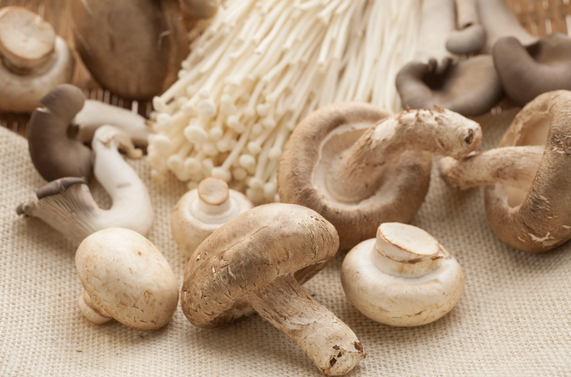
Earlier, we introduced ingredients that are familiar to us and can have a great impact on the immune system, but from now on, we will introduce some functional ingredients that may be a little unfamiliar to us. The first is beta-glucan powder, a functional ingredient recognized by the Ministry of Food and Drug Safety for its immunity-boosting function.
Beta-glucan, a type of polysaccharide linked to glucose by beta-bonds, is usually found in the cell walls of yeast and mushrooms and functions as a stimulant of the body's innate immune system. Since beta-glucan is not found in the body, the body's immune system perceives it as an invasion and puts it on alert [11].
What's unusual here is that beta-glucan only stimulates the immune response and inhibits the inflammatory response [12]. As a result, it has been reported to improve immunity, improve infection symptoms in situations where physical exhaustion is severe [13], improve exercise performance time until feeling weak, and fatigue after exercise [14].
In this way, beta-glucan is a kind of booster that acts on our immune system, especially in physically demanding situations and fatigue · It can also help improve the appearance of infections, so it can help maintain health during heavy work or study fatigue. However, beta-glucan is a non-degradable ingredient and is difficult to consume meaningfully as a natural food, so it is advisable to consume it as a health functional food when choosing a product.
5. Alkoxyglycerol
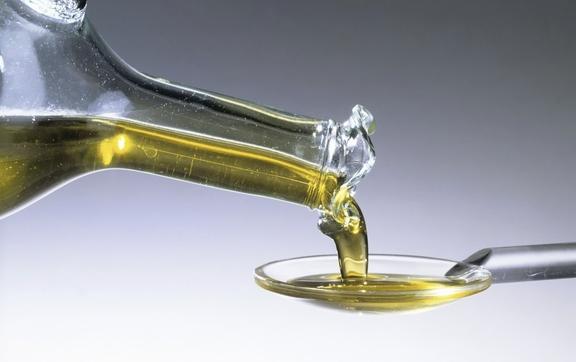
While beta-glucan is a component that boosts the immune system by acting as a 'foreign factor' in the body, alkoxyglycerol, the last ingredient we will introduce today, plays an important role in the body's immune response as an intrinsic defense factor. It has been studied in clinical studies related to the treatment of leukemia and as an adjunct to the prevention of radiation illness caused by chemotherapy [15].
Alkoxyglycerol is mainly distributed in blood-producing organs such as bone marrow and liver, and is also abundant in breast milk [16]. The representative food that contains this ingredient is shark liver oil, which we are familiar with, and the Ministry of Food and Drug Safety recognizes "shark liver oil containing alkoxyglycerol" as a functional ingredient that boosts immunity.
Alkoxyglycerol promotes hematopoietic activity, increasing the production of white blood cells in the bone marrow and immunoglobulins in the serum, and enhancing phagocytosis and immune response to increase the body's resistance [17] While the aforementioned ingredients help the body's immune system work smoothly, alkoxyglycerol is more of a booster of the immune system itself.
Because of these characteristics, alkoxyglycerol has been used in a number of clinical studies, especially in subjects with extremely compromised immune systems, such as the elderly or perioperative patients [18]. These studies have reported that alkoxyglycerol supplementation reduced postoperative complications [19] and improved patient survival and survival time [20].
As such, alkoxyglycerol is a defense factor that can help strengthen the body's immune system itself. It can be said that it is a suitable ingredient for the recovery of the body of patients before and after surgery. In addition, there are a number of research reports [21] on anti-tumor activity, so it is recommended that those who have had tumors or have been found repeatedly should pay attention to them.
Today, I introduced you to the 5 ingredients for immunity, which are the basics of good health, and as I mentioned at the beginning, immunity is constantly threatened by everyday factors such as aging, stress, insufficient sleep, alcohol consumption and smoking. It's important to remember that a healthy lifestyle is just as important as nutrition for a healthy immune system.
I hope you have a healthy day in body and mind. It was Jinny.
[1,2] Ministry of Food and Drug Safety, Health Functional Food Functional Ingredients <Zinc >
[3] Ogawa, Y., Kinoshita, M., Shimada, S., & Kawamura, T. (2018). Zinc and skin disorders. Nutrients, 10(2), 199.
[4] Yee, B. E., Richards, P., Sui, J. Y., & Marsch, A. F. (2020). Serum zinc levels and efficacy of zinc treatment in acne vulgaris: A systematic review and meta‐analysis. Dermatologic Therapy, 33(6), e14252.
[5] Prietl, B., Treiber, G., Pieber, T. R., & Amrein, K. (2013). Vitamin D and immune function. Nutrients, 5(7), 2502-2521.
[6] Bergman, P., Norlin, A. C., Hansen, S., Rekha, R. S., Agerberth, B., Björkhem-Bergman, L., ... & Andersson, J. (2012). Vitamin D3 supplementation in patients with frequent respiratory tract infections: a randomised and double-blind intervention study. BMJ open, 2(6), e001663.
[7] Coussens, A. K., Wilkinson, R. J., Hanifa, Y., Nikolayevskyy, V., Elkington, P. T., Islam, K., ... & Martineau, A. R. (2012). Vitamin D accelerates resolution of inflammatory responses during tuberculosis treatment. Proceedings of the National Academy of Sciences, 109(38), 15449-15454.
[8] Müller, K., Diamant, M., & Bendtzen, K. (1991). Inhibition of production and function of interleukin-6 by 1, 25-dihydroxyvitamin D3. Immunology letters, 28(2), 115-120.
[9,10] Vieira, A. T., Teixeira, M. M., & Martins, F. S. (2013). The role of probiotics and prebiotics in inducing gut immunity. Frontiers in immunology, 4, 445.
[11,12] Chan, G. C. F., Chan, W. K., & Sze, D. M. Y. (2009). The effects of β-glucan on human immune and cancer cells. Journal of hematology & oncology, 2(1), 1-11.
[13] Talbott, S., & Talbott, J. (2009). Effect of BETA 1, 3/1, 6 GLUCAN on upper respiratory tract infection symptoms and mood state in marathon athletes. Journal of sports science & medicine, 8(4), 509.
[14] Xu, X., Ding, Y., Yang, Y., Gao, Y., Sun, Q., Liu, J., ... & Zhang, J. (2018). β-Glucan salecan improves exercise performance and displays anti-fatigue effects through regulating energy metabolism and oxidative stress in mice. Nutrients, 10(7), 858.
[15] Pugliese, P. T., Jordan, K., Cederberg, H., & Brohult, J. (1998). Some biological actions of alkylglycerols from shark liver oil. The Journal of Alternative and Complementary Medicine, 4(1), 87-99.
[16] Iannitti, T., & Palmieri, B. (2010). An update on the therapeutic role of alkylglycerols. Marine Drugs, 8(8), 2267-2300.
[17,18] Berdel, W. E., Bausert, W. R., Weltzien, H. U., Modolell, M. L., Widmann, K. H., & Munder, P. G. (1980). The influence of alkyl-lysophospholipids and lysophospholipid-activated macrophages on the development of metastasis of 3-Lewis lung carcinoma. European Journal of Cancer (1965), 16(9), 1199-1204.
[19] Palmieri, B., Pennelli, A., & Di Cerbo, A. (2014). Jurassic surgery and immunity enhancement by alkyglycerols of shark liver oil. Lipids in Health and Disease, 13(1), 1-5.
[20] Brohult, A., Brohult, J., Brohult, S., & Joelsson, I. (1986). Reduced mortality in cancer patients after administration of alkoxyglycerols. Acta obstetricia et gynecologica Scandinavica, 65(7), 779-785.
[21] Iagher, F., de Brito Belo, S. R., Souza, W. M., Nunes, J. R., Naliwaiko, K., Sassaki, G. L., ... & Fernandes, L. C. (2013). Antitumor and anti-cachectic effects of shark liver oil and fish oil: comparison between independent or associative chronic supplementation in Walker 256 tumor-bearing rats. Lipids in health and disease, 12(1), 1-9.


![[Immunity BEST 5] Basics of Health, Ingredients for Immunity BEST 5](http://esther-mall.com/cdn/shop/articles/34.jpg?v=1733993679&width=480)
![[Apple cider vinegar benefits] 3 benefits of apple cider vinegar to improve diet efficiency](http://esther-mall.com/cdn/shop/articles/33.jpg?v=1733993412&width=480)
![[Garcinia Cambogia Benefits] calorie cutting? 3 Benefits of Garcinia Cambogia Extract](http://esther-mall.com/cdn/shop/articles/35.jpg?v=1734004463&width=480)